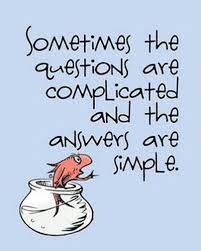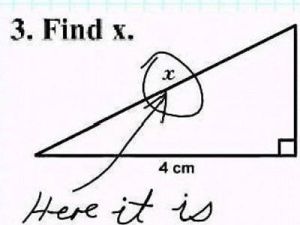Understanding the essence of academic assessment questions enable the student to map out responses that fit the knowledge domains required such as factual recollection of learning or procedural (application of learned theory)
Model of Learning Objectives
Source: http://www.celt.iastate.edu
The levels of cognition domains can be gauged by the verbs that appeared within the exam question:
Taxonomy of Educational Objectives with Verbs; Cognitive Domain
Source: http://www.madonna.edu/pdf/admissions/bloomcog.pdf
Simple yet daunting academic assessment words:
Assess, analyse, evaluate, criticize, critique, review:
Outline the positive and negative aspects of a topic or issue. You will likely be required to come to some final conclusion or reasoned judgment based on the balance of what you have identified as good and bad. E.g. “Using Southeast Asia as an example, evaluate the usefulness of the ‘Domino Theory’.”
Elaborate:
Explain in detail. E.g. “Elaborate on the reasons for the U.S. not agreeing to a permanent U.N. International Tribunal on War Crimes.” So, you would list and then explain.
Explain, discuss, describe, delineate:
These generally mean much the same thing, namely give a complete, detailed account of a topic. E.g. “Discuss how bills are passed in British parliamentary system.”
Classify, categorize:
Organize the phenomenon or topic in some logical and justifiable way. E.g. “Classify the landforms of glaciation in a lowland environment such as the Midwest.” Obviously you don’t just tabulate the material, but you also explain the basis of classification.
Compare:
Means write about the ways in which two or more things are the same, or what they have in common. E.g. “Compare the golf swing with the baseball swing.” Obviously one might think to add, “… then contrast both swings” (see next definition for “contrast”).
Contrast:
Means write about the ways in which two or more things differ. (Often used along with “compare”). E.g. “Contrast the manner in which the Waco and Ruby Ridge sieges were conducted by federal agents.” Note that this questions might continue …. “What lessons were learned at Waco and applied to Ruby Ridge?” Be sure to answer BOTH parts! But note how the second part re-enforces the first.
Define, interpret:
Explain the meaning of something. “Interpret” might also imply some evaluation, but usually not. E.g. “Define ‘democracy’ as used by Plato.” (” …. contrast his meaning with the use of the term in the U.S. today.”)
Illustrate, exemplify:
Provide actual examples of the ideas you are writing about (“illustrate” generally does not mean that a diagram is required). In fact, doing this yourself is always a good idea in a complete answer. For example, you might be asked to explain an idea, but you should illustrate it also. E.g. “Discuss the changes in Beethoven’s music over the last years of his life.” This cannot just mean that you should “list” them, you should also cite actual examples of early and late works that support your answer.
Justify, support:
These are often used as part of a larger question, but they also occur on their own. Their meaning is similar to “assess” (see above) in that some kind of reasoned judgment on your part is being asked for. Unlike “assess” such questions are often one-sided, e.g. “Justify the U.S. policy of non-intervention in Europe in the years 1939-1941.” Assessing it would be a bit different and a larger question (see “assess”).
List, enumerate, outline, name:
Provide a complete list of features or items asked for. E.g. “List the members of the U.N. Security Council.” Most often the question will then go on to ask you something further about the list. E.g. “List the three ways by which the body can protect itself from disease and explain how each works.” BUT BE CAREFUL HERE: Sometimes (often) the second part is assumed by prof, e.g. “Outline the three ways by which the body can protect itself from disease” might imply also an explanation is expected.
Source: http://www.uwmc.uwc.edu/academics/departments/freshman_seminar/words.htm
Don’t try this in exam:

